You have no items in your shopping cart.
Bordeaux
Château Léoville Las Cases
(13 customer reviews)
The Léoville Las Cases estate comes from one of the oldest lines of Médoc owners, around the village of Saint-Julien-Beychevelle. Like its cousins Château Léoville Barton and Château Léoville Poyferré, the estate is classified as a Second Growth in the official 1855 classification of Bordeaux wines. Planted predominantly with Cabernet Sauvignon and managed using sustainable agriculture, the estate produces wines of international renown. Find out more
 Recommended by
Recommended byParker Wine Advocate - Bettane et Desseauve avant 2020 - Jancis Robinson
24
-
85 result(s)
- Price (€)
- User ratings
- Promotion
-
- (1)
- (6)
- Guides reviews 🍷
-
- (15)
- (14)
- (13) Read more
- Vintage
-
- (3)
- (5)
- (1) Read more
Bordeaux :
Best rated red wines
Best rated red wines
Bordeaux :
Best rated white wines
Best rated white wines
-

Shipped in
secured packaging - -24%
- -22%
- -22%
-

Garantie anti-casse :
Prise en charge totale
The winemaker
History of the domain
The estate was originally owned by one of Bordeaux's oldest and wealthiest noble families. Originally, wine-producing estates in the Médoc could be counted on the fingers of one hand, Château Margaux and La Tour de Saint-Lambert (now renamed Château Latour) being the best known. In 1638, Master Jean de Moytié, a Bordeaux parliamentarian, acquired an estate which he named Mont Moytié.
From then on, the château remained in the family. The first change came in 1740 when, following a marriage, Alexandre de Gasq, Seigneur de Lionville (or Léoville), took over the reins of the estate. The Mont-Moytié estate then became the Léoville estate.
Following the French Revolution, the family was forced to divide and sell a large part of the estate. Until 1850, it was gradually divided into three châteaux: Léoville Barton, Léoville Poyferré and Léoville Las Cases. The latter reclaimed by far the largest part of the original estate: three-fifths of the total surface area went to the new happy owners: the Las Cases family.
The Holy Grail arrived a few years later. In 1855, a classification of Bordeaux's finest wines was expressly requested by Napoleon III at the Exposition Universelle that same year. The three Léoville estates were classified as second growths (none of the Saint-Julien wines were classified as first growths, a title then reserved for three illustrious châteaux in the Médoc and one in Graves). Although sometimes criticized today, this historic distinction has enhanced the estate's prestige in France and abroad.
From vine to cellar
Year after year, the estate has evolved. Today, and since 1900, the estate has belonged to the Delon family, who also own three other estates in the Bordeaux region, including Château Nénin in Pomerol. In all, the château boasts 97 hectares of vines, planted exclusively with red grapes. As with most estates on Bordeaux's Left Bank, the grape varieties are Cabernet Sauvignon (66%), Merlot (24%), Cabernet Franc (9%) and a small amount of Petit Verdot (1%). Unlike some AOC Saint-Julien estates, the estate has chosen not to produce white wine. It is easily distinguished in the landscape by the Clos enclosing its vines, which have been cultivated for several decades using integrated farming methods. While the vines are clearly separated from the rest of the vineyard, the winery is a reminder of the estate's roots. The château shares the building with its illustrious cousin, Léoville-Poyferré.
The château's wines
Every year, around 400,000 bottles leave the Château's cellars. The latter produces two wines exclusively: the cuvée Grand Vin de Léoville, and a second wine: Le Petit Lion du Marquis de Las Cases (formerly Clos du Marquis). The former is essentially made from Cabernet Sauvignon, a noble grape variety with great ageing potential, and boasts incomparable tannic structure and fruitiness. The second, on the other hand, features Merlot, is softer and fruitier, and should be drunk younger. Saint-Julien wines are a perfect match for oven-baked Pauillac lamb, accompanied by confit sun vegetables (eggplant, tomatoes). Slight notes of coffee and chocolate are discreetly detectable on tasting, so a dessert playing on these same aromas will underline them with delight.

22 wines available
between 53.99 € and 626.85 €
between 53.99 € and 626.85 €

495 wine's scans
on Twil application
on Twil application
You might like Voir tous les vins de la région
- -32%
- -17%
- -30%

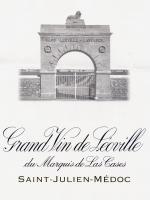
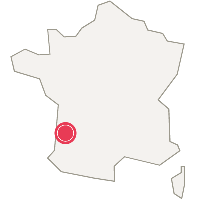


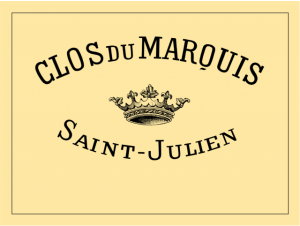












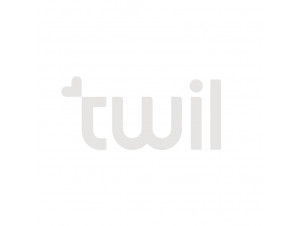





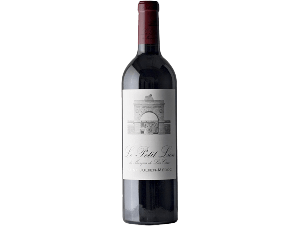
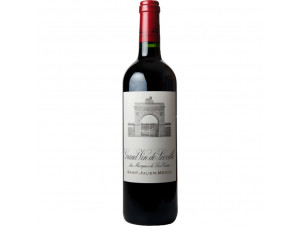
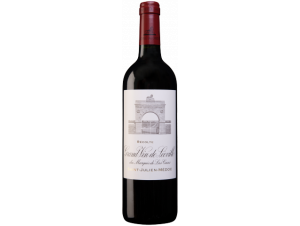













 TWIL - Achat de Vin
TWIL - Achat de Vin


